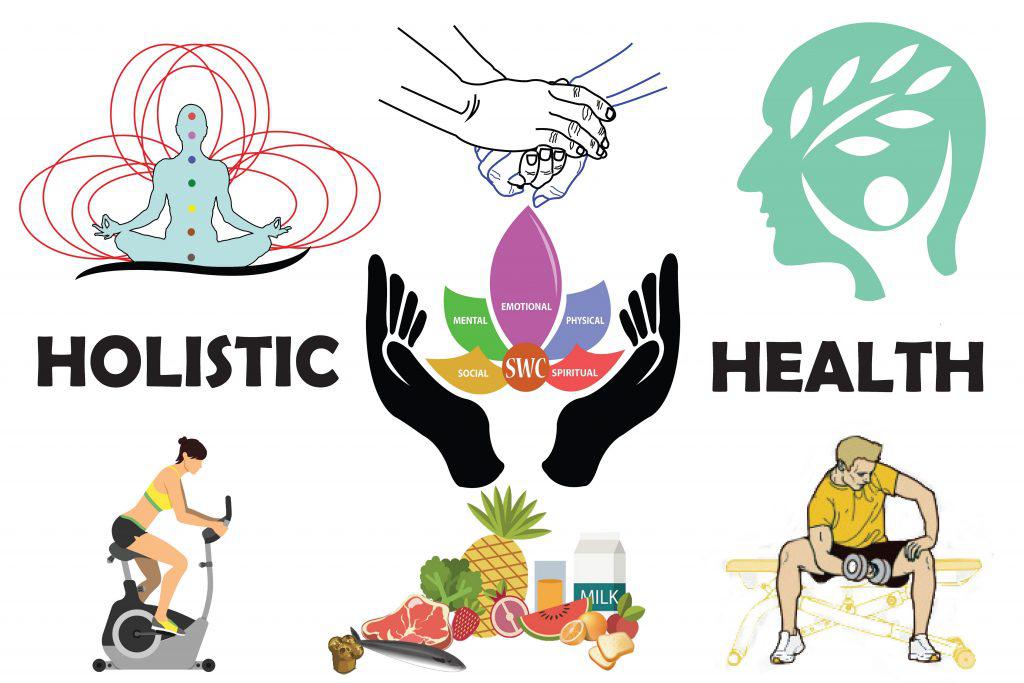Golf Fitness: A Holistic Approach to Enhancing Performance and Longevity
Optimizing golf performance requires a multifaceted strategy that incorporates physical fitness. Golfers seeking to attain longevity and excellence in the sport must adopt a holistic approach that encompasses all aspects of their physical well-being, from strength training to nutrition. This article presents an in-depth exploration of golf fitness and its numerous benefits.
Golf fitness demands a comprehensive regimen that includes strength training, flexibility exercises, and cardiovascular conditioning. Not only does strength training enhance swing mechanics and power generation, but it also plays a crucial role in injury prevention. By targeting specific muscle groups, golfers can improve their stability, balance, and flexibility, which are essential for executing precise and powerful shots. Flexibility exercises promote range of motion, enabling golfers to maintain optimal swing mechanics and reduce the risk of strains and injuries. Cardiovascular conditioning, on the other hand, improves endurance, allowing golfers to maintain focus and concentration throughout the course.
Nutrition is another critical component of golf fitness, as it fuels athletic performance and supports recovery. A well-balanced diet supplies the body with the necessary nutrients to enhance energy levels, promote muscle growth, and aid in the repair of damaged tissues. By fueling their bodies with the right nutrients, golfers can optimize their performance and longevity.
Mental and emotional well-being are also crucial for success in golf. Stress management techniques help golfers cope with the mental challenges of the game, while focus training improves their ability to concentrate and make sound decisions. Sleep optimization, often overlooked by athletes, plays a vital role in physical recovery, cognitive function, and overall well-being.
This article delves into the various aspects of golf fitness, providing a comprehensive guide for golfers seeking to enhance their performance and longevity. By embracing a holistic approach, golfers can unlock their full potential, maximize their enjoyment of the game, and maintain a healthy and active lifestyle both on and off the course.
1. Understanding the Multifaceted Benefits of Holistic Golf Fitness
Adopting a comprehensive approach to golf fitness can significantly enhance overall performance on the course. Holistic golf fitness encompasses a range of practices that focus on the physical, mental, and emotional well-being of golfers. Engaging in a holistic fitness regimen helps golfers unlock their full potential and reach peak performance levels.
Physical Benefits
- Enhanced swing mechanics: Holistic golf fitness strengthens core muscles, improves flexibility, and enhances coordination, leading to a more powerful and efficient swing.
- Increased power generation: Strength training and cardiovascular conditioning boost muscle strength and endurance, allowing golfers to generate more power throughout their swing.
- Injury prevention: Regular exercise, stretching, and balance training help maintain muscle balance and prevent injuries that can disrupt golf performance.
- Improved recovery: Holistic fitness promotes faster recovery after workouts and rounds of golf, allowing golfers to train more frequently and maintain peak performance.
Mental and Emotional Benefits
- Stress management: Holistic fitness incorporates techniques like mindfulness and meditation, which help golfers manage stress and stay focused during the game.
- Improved focus: Goal-setting and visualization exercises train golfers to concentrate and remain present during their rounds.
- Increased confidence: Regular exercise and goal attainment boost confidence levels, giving golfers the mental edge needed to perform at their best.
Additional Benefits
Beyond enhancing golf performance and longevity, a holistic approach to fitness offers additional benefits:
- Improved overall health and well-being: Holistic fitness practices contribute to improved cardiovascular health, flexibility, and overall vitality.
- Enhanced sleep quality: Exercise promotes relaxation and reduces stress, leading to better sleep, which is essential for optimal golf performance.
- Social connections: Participating in fitness activities with other golfers fosters a sense of community and can make the game more enjoyable.
2. Physical Fitness: Enhancing Mechanics, Power, and Injury Prevention
A comprehensive golf fitness program prioritizes physical fitness to optimize swing mechanics, power generation, and injury prevention.
Strength Training
Regular strength training is essential for golfers. Stronger muscles contribute to improved swing mechanics, increased clubhead speed, and reduced risk of injuries. Engage in exercises targeting both the upper and lower body to ensure balanced development. Focus on compound exercises that work multiple muscle groups simultaneously, such as squats, lunges, rows, and presses. Resistance bands and free weights are valuable tools for building strength and improving overall athleticism.
Flexibility
Flexibility is crucial for maintaining a healthy range of motion and preventing injuries. Incorporate exercises that stretch the major muscle groups involved in the golf swing, such as the hamstrings, quadriceps, calves, shoulders, chest, and back. Regular stretching helps preserve flexibility, allowing for proper swing mechanics and reducing the risk of muscular imbalances or strains.
Cardiovascular Conditioning
Cardiovascular conditioning is essential for maintaining endurance throughout a round of golf. Engage in activities that elevate the heart rate and promote cardiovascular health, such as brisk walking, jogging, swimming, or cycling. The increased cardiovascular capacity enables golfers to sustain their energy levels, focus, and performance during extended periods on the course.
3. The Significance of Nutrition: Fueling Performance and Recovery
Proper nutrition is essential for maximizing golf performance and supporting recovery. Opt for a balanced diet that includes ample fruits, vegetables, whole grains, and lean protein. Stay hydrated by consuming plenty of water throughout the day. A well-nourished body ensures:
-
Sustained Energy Levels: Carbohydrates, the body’s primary energy source, power your golf swing. Opt for complex carbs, such as brown rice and oatmeal, for a sustained release of energy.
-
Increased Strength and Endurance: Protein supports muscle growth and repair. Include lean sources in your diet, such as chicken, fish, and beans.
-
Enhanced Recovery: Vitamins, minerals, and antioxidants aid in muscle recovery. Focus on consuming fruits and vegetables rich in these nutrients, such as berries, leafy greens, and citrus fruits.
Here’s a sample meal plan for a golfer:
| Meal | Options |
|---|---|
| Breakfast | Oatmeal with berries and nuts; whole-wheat toast with peanut butter; scrambled eggs with spinach |
| Lunch | Salad with grilled chicken, quinoa, and vegetables; lentil soup with a whole-grain roll; tuna sandwich on whole-wheat bread |
| Dinner | Salmon with roasted vegetables; chicken stir-fry with brown rice; grilled steak with sweet potato and asparagus |
| Snacks | Fruit, yogurt, nuts, trail mix, protein shakes |
By adhering to a nutritious diet, golfers optimize their physical well-being, boosting their performance and ensuring longevity on the course.
4. The Mind-Body Connection: Stress Management and Emotional Well-being
Harmonizing Mind and Body for Golfing Success
Peak performance in golf extends beyond physical prowess, encompassing the intricate interplay of the mind and body. Stress, if uncontrolled, can disrupt swing mechanics, impair decision-making, and diminish focus. Effective stress management techniques are essential for golfers seeking optimal performance and longevity. Mindfulness practices, breathing exercises, and progressive muscle relaxation can help calm the nervous system and enhance concentration on the course.
Table: Mindfulness and Breathing Exercises for Stress Reduction
| Technique | Description | Benefits |
|---|---|---|
| Mindful Breathing | Focus on deep, controlled breathing, inhaling through the nose and exhaling through the mouth | Calms the mind, reduces anxiety, and improves focus |
| 4-7-8 Technique | Inhale for 4 seconds, hold for 7 seconds, and exhale for 8 seconds | Promotes relaxation, lowers heart rate, and prepares for restful sleep |
| Progressive Muscle Relaxation | Systematically tense and relax different muscle groups | Relieves physical and mental tension, improves sleep quality, and enhances recovery |
Emotional Intelligence for Golfing Mastery
Golfers who possess emotional intelligence have a distinct advantage. Self-awareness allows them to recognize and regulate their emotions, maintaining composure under pressure. Managing anger and frustration effectively prevents mental lapses that can derail performance. Techniques such as journaling, gratitude practices, and positive self-talk foster emotional resilience and cultivate a positive mindset on and off the course.
5. Sleep Optimization: A Crucial Aspect of Golf Fitness for Longevity and Success
Unlocking the true potential of golf performance requires a comprehensive strategy that prioritizes rest and recovery alongside physical fitness. Sleep plays a pivotal role in enhancing recovery, cognitive function, and emotional well-being, all of which are essential for golfers seeking longevity and success on the course.
Quality sleep promotes muscle repair and tissue regeneration, enabling golfers to recover from intense training sessions and prepare for the demands of tournament play. Adequate rest also enhances cognitive function, including attention, focus, and decision-making abilities, crucial for executing precise shots and strategic course management.
Moreover, sleep optimization contributes to emotional well-being by reducing stress levels and improving mood. Well-rested golfers are less likely to experience anxiety, depression, or irritability, which can interfere with performance on the course. Additionally, sleep deprivation can impair the body’s immune system, increasing the risk of injuries and illnesses that can hinder golf fitness goals.
golf fitness encompasses a multifaceted approach that addresses all aspects of an individual’s physical, mental, and emotional well-being. By embracing a holistic fitness regimen, golfers can maximize their performance on the course, enhance their longevity in the sport, and maintain a healthy and active lifestyle both on and off the greens. The benefits of golf fitness extend beyond the physical realm, positively impacting golfers’ overall quality of life and well-being.







